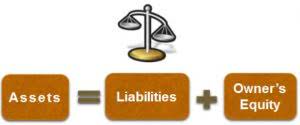Bookstime
What are recurring payments? Definition, Types and Benefits

Some regulations and guidelines govern these payments to ensure consumer protection, transparency, and fair practices. At the same time, businesses should adhere to best practices and legal requirements to maintain trust and comply with the law. Researching and selecting the right recurring payment processor for your business can lead to higher revenue, an ideal recurring payment structure, simpler logistics, and more. Fixed recurring payments are automated, which translates into a lot more time on your financial team’s hands—time they can use to focus on more important tasks, such as forecasting and planning. Recurring billing benefits both businesses and consumers by providing convenience and predictability. For businesses, it reduces administrative overhead and enhances customer retention, while consumers appreciate the ease of consistent, automatic transactions.
What Types of Businesses Use Recurring Payments?
Manual billing processes—including processing paper invoices and physical checks—can be a drain on time and resources. By automating payments, employees can focus on core business activities and strategic initiatives. This efficiency allows you to channel resources towards strategic initiatives, driving growth and profitability. Recurring payments reduce the likelihood of late or missed payments, improving overall cash flow stability. This consistency allows businesses to forecast and plan finances more accurately, minimizing cash flow gaps and unexpected fluctuations.
- Our new set of developer-friendly subscription billing APIs with feature enhancements and functionality improvements focused on helping you accelerate your growth and streamline your operations.
- This stability in cash flow enables better financial planning and decision-making.
- In certain circumstances, businesses will let their consumers select how frequently they want to make payments.
- Finally, the company notifies the customer about the billing through a communication channel such as email.
- If there is a consistent need for a product or service, however, there is potential to charge for recurring payments.
Benefits of Recurring Payment in Business Growth

At the same time, consumers enjoy convenience, budget predictability, and access to valuable services. Although a recurring billing model is not the equivalent of a fortune-teller, it can help you plan your finances more accurately. When customers opt for an ongoing billing cycle, they agree to pay the same fee at a predefined schedule.

Automate recurring payments with Zoho Billing
- This saves time and ensures that payments are made on time, eliminating the risk of late fees or service disruptions.
- Recurring payments have become an integral part of modern business operations, revolutionizing the way companies interact with their customers and manage financial transactions.
- It’s fully automated, which reduces the demands on your accounting team, and allows you to take recurring payments quickly and easily.
- Find out everything you need to know about what recurring payments mean, right here.
- Prior to each scheduled debit, the customer receives a notification, usually via SMS or email, informing them about the upcoming transaction.
To reduce the risk of isolating potential customers, merchants must first ensure that paying online is simple for customers. This means providing clear instructions on how to ensure that their chosen payment method is accepted and presenting a seamless checkout experience with as few steps as possible. Maintaining a healthy cash flow can be a struggle, even for the most profitable what is recurring billing enterprises. Once the acquiring bank, card network, and issuing bank have approved the transaction, the payment gateway processes the payment by transferring the money to the business’s bank account. The payments are recurring, but the amount changes with the number of services or products used during the month, week, or year.


This is because businesses will have a clear understanding of how much money they will earn in each month Partnership Accounting or year, making budgeting and planning for the future easier. Recurring payments are not just helpful to manage collections, they also improve your customers’ experience and ensure a steady stream of revenue. Recurring payments are the financial backbone of streaming platforms, software, or any service that depends on subscriptions.
Benefits of Recurring Payments in the Modern World
- Although there are several benefits of using recurring payments, there are also drawbacks to consider before deciding if this type of payment is right for your business.
- Furthermore, you must ensure that your system is secure and consistent with industry laws.
- In today’s modern world, recurring payments have become a vital tool for businesses to optimize operations and foster growth.
- Moreover, this payment model is commonly used for various services and products, such as subscription-based software, loan repayment, streaming services, magazines, and membership programs.
- Manual billing processes—including processing paper invoices and physical checks—can be a drain on time and resources.
- Be wary of any organisation that pressures you into setting up auto debit against your will.
- Give customers the option to choose between monthly plans at a higher rate and annual plans at a reduced rate.
Regularly review your bank statements to ensure that the correct amounts are being debited and that there are no unauthorised transactions. These guidelines ensure that customers have control over their auto debit arrangements and are protected against fraudulent activities. Finding a payment gateway and a billing system assets = liabilities + equity that scales with your business can get overwhelming. As a growing SaaS business, if you’re not pricing your product or service right, you’re leaving money on the table. Recurring payments can be categorized based on the payment modes used and based on how the payment to be charged is calculated. If you’re not attentive, changing your payment plan might be hard and time-consuming.
